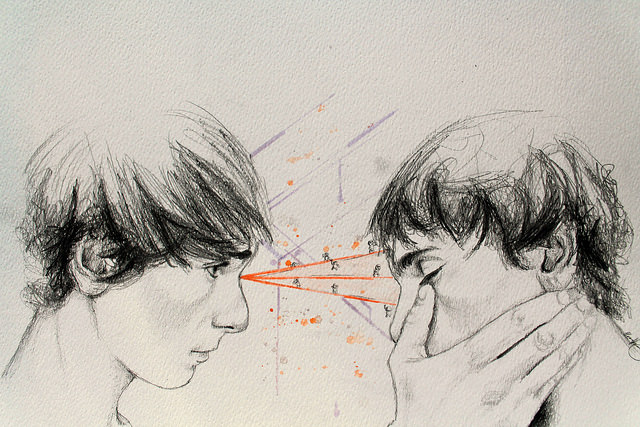Are you against the mind? Do you think the mind is your enemy?
You’re not alone. In New Age spirituality, the mind is often portrayed as the biggest obstacle to our personal and spiritual growth.
The barrier between us and enlightenment, the great dragon to slay in order to find the treasure of self-realization, the mind doesn’t have a great reputation nowadays—at least, not among self-appointed “spiritual” people.
As a direct consequence of this, we may observe some hype around all that is physical and embodied, or, as some would say, “experiential” (we will come back to this definition in a minute). New Age spirituality has popularized “touchy-feely” practices where mind and reasoning are mainly, if not completely, left out.
This tendency is everywhere—in yoga, with the flourishing of styles that emphasize the physical aspect and downplay the mental; in Tantra, with the surge of experiential workshops where people spend hours cuddling each other, with little if any spiritual background; in meditation, with the popularity of styles that are all about “shutting down the mind” and “re-connecting with the body”; even in popular language, where “being in the mind” has become a synonym of being disconnected, rigid, stuck in unhealthy patterns, while connecting with body and feelings is the cure for all evil.
But wait a second, was this mistrust of the mind always there?
Not really. As soon as we look past the last 50 years, we see that many spiritual traditions were highly respectful of the mind.
The Mind in Yoga and Indian Philosophy.
Indian philosophy, for example, held the mind in great consideration and studied it with the utmost care, as is shown by the richness of vocabulary around the different faculties of the mind.
The Sanskrit name for the “discriminative intellect” (corresponding to our “rational mind”) is buddhi. Does this sound familiar? Yes, buddhi and Buddha are linked. There is a connection between developing a discriminative intellect and attaining the state of self-realization that grants one the title of Buddha.
In Yoga, it said that one reaches the highest spiritual states through the practice of viveka, discernment, andvairagya, non-attachment. Viveka describes a relentless inquiry into the Self, the nature of Truth and the nature of reality. And what may be the tool of this inquiry? The mind, of course, in its highest logical and rational form.
Sri Aurobindo, the Indian yogi and sage famous for giving birth to the so-called “integral approach” to spirituality, offers a wonderfully complete and sensible depiction of the mind and its place in the scheme of things. According to Aurobindo, the manifested reality that surrounds us is made up of three fundamental layers: matter, life and mind. Each of these layers “grows” upon the lower one and transcends it. Thus, matter evolves into life, and life evolves into mind.
In a sense, we could say that the purpose of matter is to create life, and that the purpose of life is to create mind.
It is true that evolution does not stop at the level of the mind. Aurobindo speaks of the “supermind,” a stage above the mind that grants access to the superior planes of pure consciousness and being. In other words, there is a basis of truth to the idea that evolution ultimately brings us beyond the rational level of the mind. But this journey can only happen through the mind, and mind remains a necessary step to accessing pure being—a step which we cannot bypass.
Read the full article on the Elephant Journal.
Image: Houser Wolf/Flickr // lucahennig/Flickr

